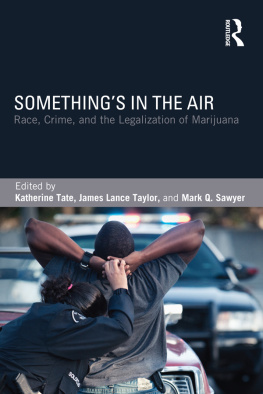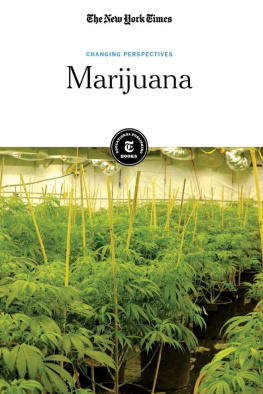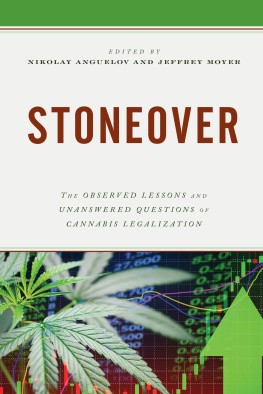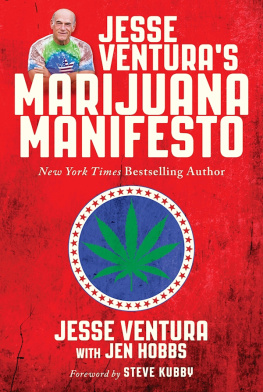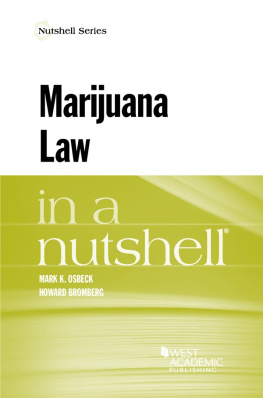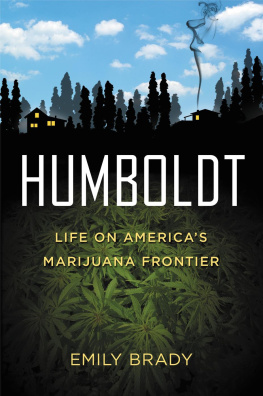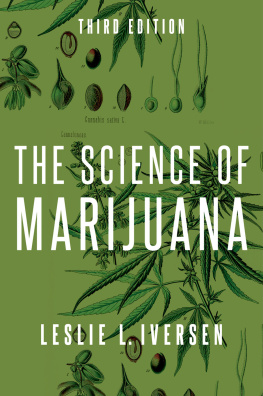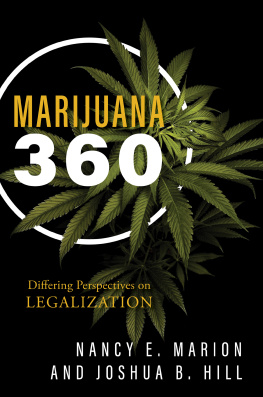SOMETHINGS IN THE AIR
Americas drug laws have always exerted an unequal and unfair toll on Blacks and Latinos, who are arrested more often than Whites for the possession of illegal drugs and given harsher sentences. In this volume, contributors ask: how would marijuana legalization affect communities of color? Is legalization of marijuana necessary to safeguard minority families from a lifetime of hardship and inequality? Who in minority communities favors legalization and why, and do these minority opinions differ from the opinions held by White Americans?
This volume also includes analyses of the policy debate by a range of scholars addressing economic, health, and empowerment issues. Comparative lessons are drawn from other countries as well.
Katherine Tate is Professor of Political Science at the University of California, Irvine. She is the author and coauthor of several books, including most recently, Whats Going On? Political Incorporation and the Transformation of Black Public Opinion.
James Lance Taylor is Associate Professor and Chair of the Department of Politics at the University of San Francisco. Taylor is the author of Black Nationalism in the United States: From Malcolm X to Barack Obama.
Mark Q. Sawyer is Professor of African American Studies and Political Science at UCLA. He is the author of the award winning book, Racial Politics in Post Revolutionary Cuba, and co-editor of Just Neighbors?: Research on African Americans and Latino Relations in the United States.
SOMETHINGS IN THE AIR
Race, Crime, and the Legalization of Marijuana
Edited by Katherine Tate, James Lance Taylor, and Mark Q. Sawyer
First published 2014
by Routledge
711 Third Avenue, New York, NY 10017
Simultaneously published in the UK
by Routledge
2 Park Square, Milton Park, Abingdont Oxon OX14 4RN
Routledge is an imprint of the Taylor & Francis Group, an informa business
2014 Taylor & Francis
The right of the editors to be identified as the authors of the editorial material, and of the authors for their individual chapters, has been asserted in accordance with sections 77 and 78 of the Copyright, Designs and Patents Act 1988.
All rights reserved. No part of this book may be reprinted or reproduced or utilized in any form or by any electronic, mechanical, or other means, now known or hereafter invented, including photocopying and recording, or in any information storage or retrieval system, without permission in writing from the publishers.
Trademark Notice: Product or corporate names may be trademarks or registered trademarks, and are used only for identification and explanation without intent to infringe.
Library of Congress Cataloging-in-Publication Data
Somethings in the air: race, crime, and the legalization of marijuana / edited by Katherine Tate, James Lance Taylor, and Mark Q. Sawyer.
pages cm
Includes bibliographical references.
1. Drug legalizationSocial aspectsUnited States. 2. Marijuana United States. 3. African AmericansDrug use. 4. Hispanic Americans Drug use. 5. Discrimination in criminal justice administrationUnited States. 6. MinoritiesUnited StatesSocial conditions. I. Tate, Katherine. II. Taylor, James Lance. III. Sawyer, Mark Q., 1972
HV5825.S58424 2013
362.2950973dc23
2012051299
ISBN: 978-0-415-84239-6 (hbk)
ISBN: 978-0-415-84240-2 (pbk)
ISBN: 978-0-203-75838-0 (ebk)
Katherine Tate, James Lance Taylor, and Mark Q. Sawyer
Americas drug laws have always exerted an unequal and unfair toll on racial and ethnic communities. Blacks, Latinos, and American Indians are arrested more often than Whites for the possession of illegal drugs, and courts also impose harsher sentences on minority drug offenders. In 2009, based on the U.S. Department of Justice statistics, 1.7 million adults were arrested for drug-abuse violations, and 46 percent of those arrests were for possession of marijuana. That is why when pro-marijuana advocates were able to get Proposition 19, an initiative to legalize marijuana for personal consumption by persons 21 and older, on the November 2010 ballot in California, the head of the states NAACP chapter endorsed it. Proposition 19 also won the endorsement of Dr. Joycelyn Elders, the nations first Black U.S. surgeon general, who served in the Clinton administration. Legalization of some drugs, like marijuana, Clarence Lusane writes, would resolve some of the biggest problems of the current drug crisis and drug war (1991, 214). The drug crisis and war on drugs disproportionately impact minority Americans (Alexander 2010; Lusane 1991; Provine 2007).
California, in 1996, was the first state to legalize the use of marijuana for medicinal purposes. By 2012, 16 states, including Washington, D.C., now permit its use with a medical prescription. In 2010, a majority-minority city, Oakland, California, became the first city in the nation to license factories (four of them) to grow and sell marijuana for medical use. Oaklands city council backed issuing pot licenses as a way to create new jobs. Advocates for legalizing marijuana contend that it should be a vehicle for the state to collect new revenues, treating it, therefore, like alcohol and taxing for revenue-collection proposes. It will save the state revenues from the cost of maintaining its overflowing drug courts and prisons. A main reason for the legalization of marijuana is that it will eliminate the illegal market and close off a long and terrible pipeline leading toward the mass incarceration of minority youth.
Yet there is also strong opposition to the legalization of marijuana under Proposition 19. Black churches have expressed opposition to Proposition 19. Most Democrats in California have opposed it. Governor Jerry Brown, the then-Democratic candidate in 2010, said he was against Proposition 19 because the state would lose revenue from the federal government if it passed. Democratic U.S. Senator Dianne Feinstein has said that Prop 19 would contribute to rising crime rates and violence. Kamala D. Harris, the Democratic candidate for Californias state attorney general in 2010, said that the proposition would encourage driving while high and drug use at work. Public-health advocates argue that the taxes collected from the sale of marijuana wont cover the spike in health costs related to its use; in this way, too, it is like tobacco and alcohol. In general, some policy experts contend that Proposition 19 is a fantasy since federal legislation is required for the legalization of marijuana in the states (Kleiman 2010).
Marijuana for medicinal purposes was legalized first in 1996, but now, nearly 20 years later, little research exists in public policy on how new drug policies affect communities of color. As minority politics and race scholars, we feel a responsibility to communities of color in addressing current and controversial topics, and organized this volume to address the question of whether the legalization of marijuana would help or hurt the Black, Latino, and mixed-race communities. This type of research can contribute to a brighter future for minority citizens. Americas rules have been harshly unfair to Blacks and minorities, and thus, we ask whether legalization of marijuana might be necessary to safeguard minority families from a lifetime of hardship and inequality. Some of us say yes and others say no, while some have yet to take a side in this debate. Who in minority communities favors legalization and why, and do these minority opinions differ from the opinions held by White Americans?


